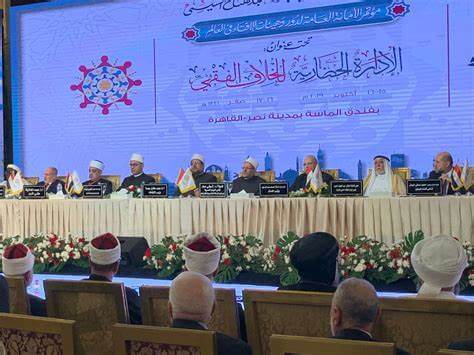Fatwa in the Age of AI

1590


AI and Religion: Fatwa and the Challenges of the Third Millennium
The past decade has witnessed astonishing developments in the field of artificial intelligence and its widespread applications in various aspects of life, including the religious domain. However, this has raised some concerns among some individuals about the possibility of technology taking control of the spiritual side or reducing religious rituals to mere mechanical routines.
The role of religious jurisprudence institutions remains focused on shaping moderate religious discourse, promoting the importance of the spiritual aspect, and emphasizing that technology is a means, not an end, employed for the benefit of humanity, not the other way around.
 Moreover, religious jurisprudence bodies worldwide, most of which fall under the umbrella of the General Secretariat of Religious Affairs and Bodies, comprising over 80 religious institutions and figures, continue to educate and reassure society that technological advancement should not be a source of concern for the religious aspect. Instead, it presents an opportunity to enhance the performance of rituals and worship, thereby strengthening faith and tranquility in the hearts of believers. This commitment is evident in all their conferences, including the October 18-19 one titled "Fatwa and the Challenges of the Third Millennium."
Moreover, religious jurisprudence bodies worldwide, most of which fall under the umbrella of the General Secretariat of Religious Affairs and Bodies, comprising over 80 religious institutions and figures, continue to educate and reassure society that technological advancement should not be a source of concern for the religious aspect. Instead, it presents an opportunity to enhance the performance of rituals and worship, thereby strengthening faith and tranquility in the hearts of believers. This commitment is evident in all their conferences, including the October 18-19 one titled "Fatwa and the Challenges of the Third Millennium."
Considering the current situation, these concerns are exaggerated, and there is no need to fear the dominance of artificial intelligence over religion for several reasons based on the approach and fatwas issued by religious jurisprudence institutions under the umbrella of the General Secretariat.
These reasons include:
1. Technology, no matter how advanced, remains a tool used by humans according to their vision and goals. It cannot override human will or impose itself.
2. The spiritual aspect of religion is tied to faith and intention, with no connection to technology. Believers understand the purpose of religious rituals and do not perform them mechanically or rely on technology.
3. Official religious jurisprudence institutions in the Islamic world are vigilant and cautious. They have the ability to guide the use of technology in accordance with religious principles through the issuance of fatwas and necessary guidelines.
4. There are specialized centers and institutions focusing on the ethics of artificial intelligence, studying its moral and social aspects, and providing solutions to potential problems.
5. Religious institutions are keen to use technology to promote religious awareness among people rather than simply automating rituals.
6. Muslim communities still adhere to their values and religious identity and are resistant to radical changes or undermining their religious principles.
As long as official religious jurisprudence institutions and fatwa conferences remain vigilant and keep pace with technological developments wisely and moderately, there is truly no reason to fear the dominance of artificial intelligence or technology in general over the religious aspect. Instead, technology can be used to serve religion when employed correctly.
Mohamed Mahmoud Habib is a researcher at the Media Center of the Egyptian Fatwa House Dar Al-Ifta. His articles are also published on the Arabic and Egyptian website, Al-Youm Al-Sabea.
Topics: Artificial Intelligence, Fatwas (Religious Advice), Science And Religion Values: Spirituality
Views: 1590
Related Suggestions
In accordance with Title 17 U.S.C. Section 107, and such (and all) material on this site is distributed without profit to those who have expressed a prior interest in receiving the included information for research and educational purposes.














